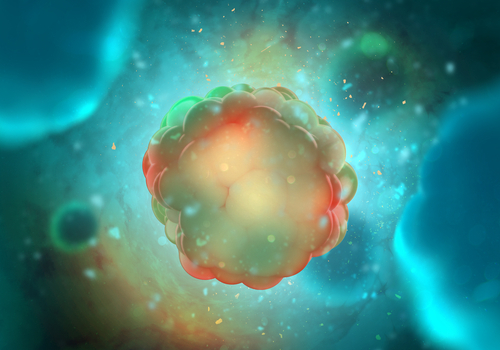Novel therapy drives cancer cells to commit suicide
IANS Oct 10, 2017
Scientists have discovered a compound that directly makes cancer cells commit suicide while sparing healthy cells, paving the way for a more effective cancer treatment with fewer adverse effects.

"We're hopeful that the targeted compounds we're developing will prove more effective than current anti-cancer therapies by directly causing cancer cells to self-destruct," said senior author of the study Evripidis Gavathiotis, Associate Professor at Albert Einstein College of Medicine in New York.The new treatment approach, described in the journal Cancer Cell, was directed against acute myeloid leukemia (AML) cells but may also have potential for attacking other types of cancers."Ideally, our compounds would be combined with other treatments to kill cancer cells faster and more efficiently -- and with fewer adverse effects, which are an all-too-common problem with standard chemotherapies," Gavathiotis added.The newly discovered compound combats cancer by triggering apoptosis -- an important process that rids the body of unwanted or malfunctioning cells.
Apoptosis trims excess tissue during embryonic development, for example, and some chemotherapy drugs indirectly induce apoptosis by damaging DNA in cancer cells.Apoptosis occurs when BAX -- the "executioner protein" in cells -- is activated by "pro-apoptotic" proteins in the cell. Once activated, BAX molecules home in on and punch lethal holes in mitochondria, the parts of cells that produce energy. But all too often, cancer cells manage to prevent BAX from killing them. They ensure their survival by producing copious amounts of "anti-apoptotic" proteins that suppress BAX and the proteins that activate it."Our novel compound revives suppressed BAX molecules in cancer cells by binding with high affinity to BAX's activation site," Gavathiotis said. "BAX can then swing into action, killing cancer cells while leaving healthy cells unscathed," Gavathiotis added.In the experiment, the mice treated with the compound BTSA1 showed no evidence of toxicity, the study said.
-
Exclusive Write-ups & Webinars by KOLs
-
Daily Quiz by specialty
-
Paid Market Research Surveys
-
Case discussions, News & Journals' summaries